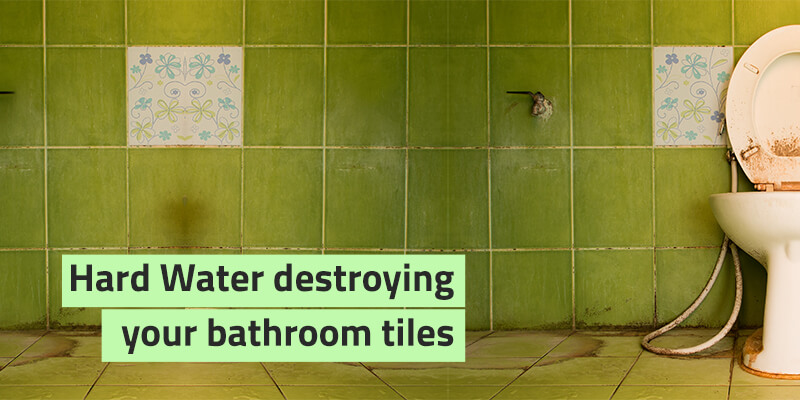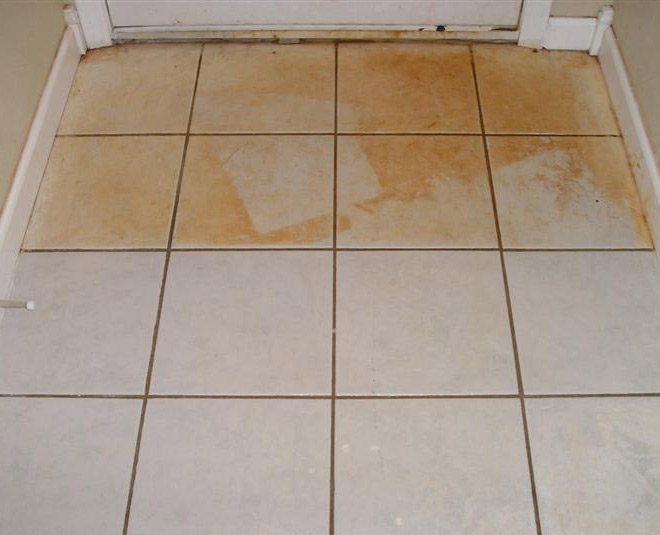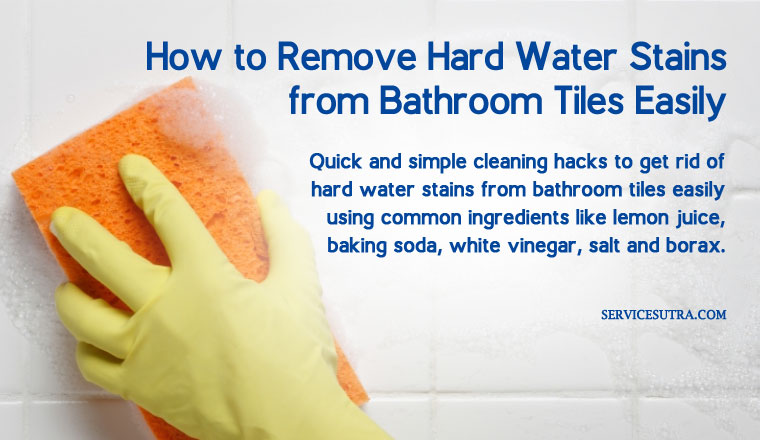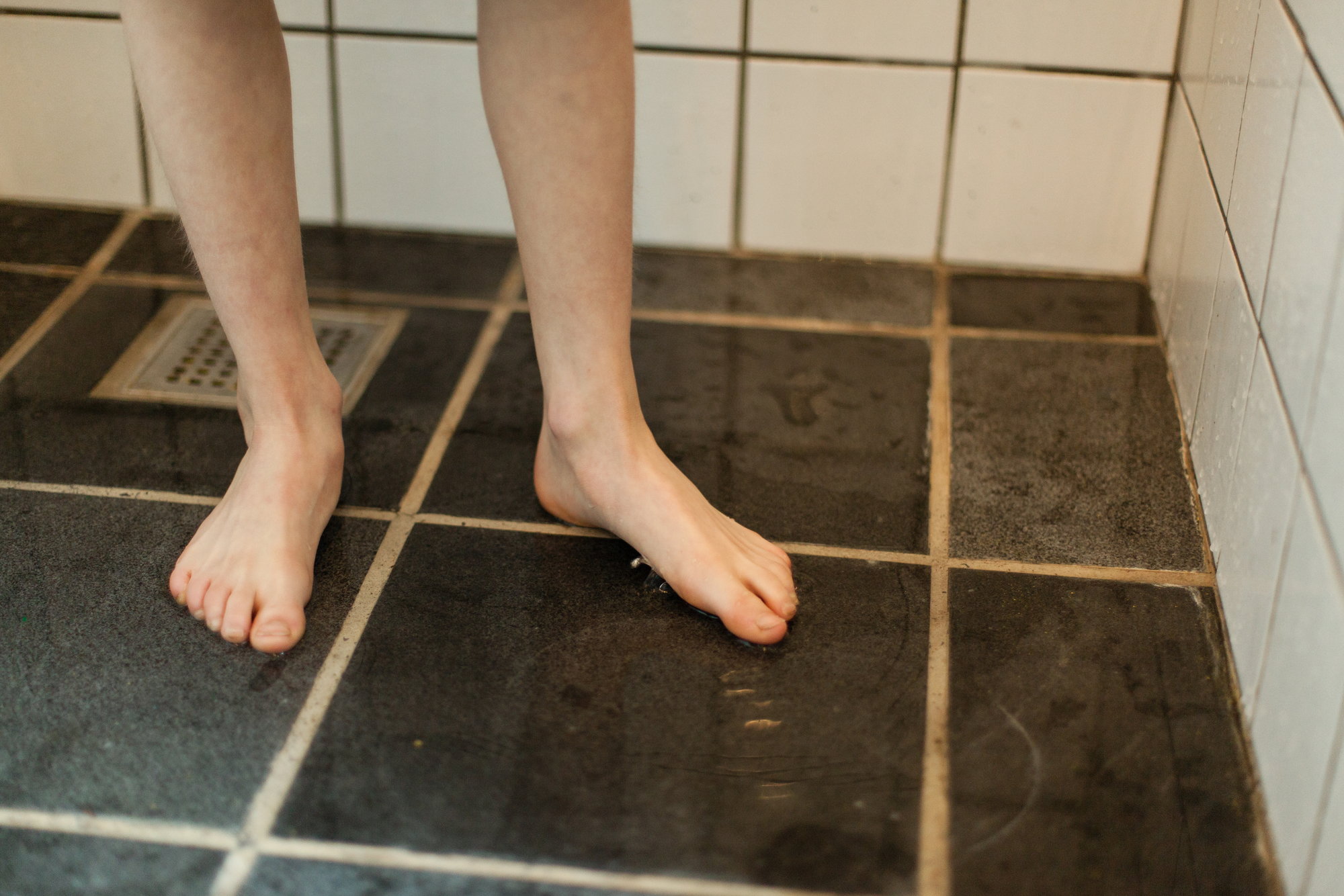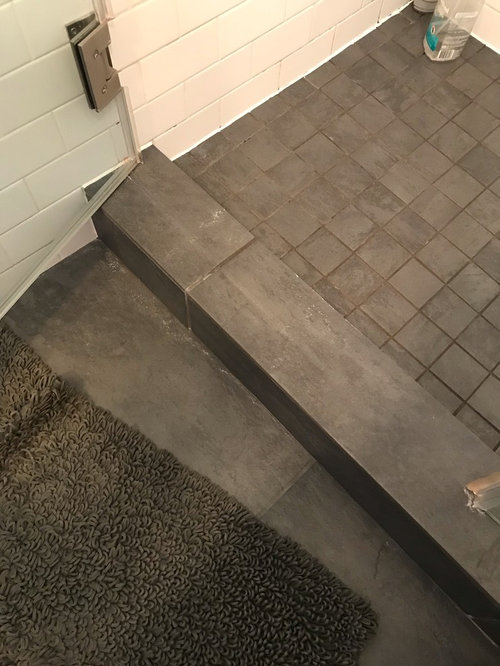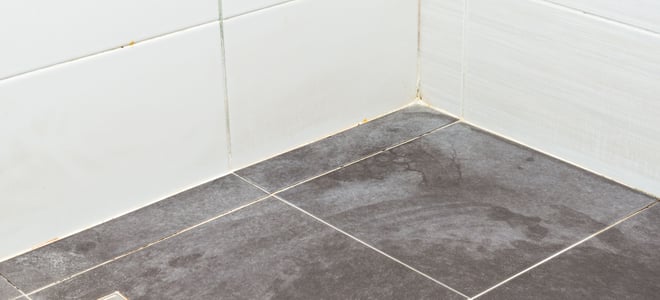Causes of Hard Water Stains on Tile Floors
Dealing with hard water stains on your tile floors can be a vexing experience. These unsightly blemishes result from mineral deposits left behind by hard water as it dries on the tile surface. We will break down the causes of these pesky stains and provide you with a clear and practical guide to tackle them effectively, all neatly organized in a list.
- High Mineral Content in Water: Hard water stains are, at their core, a consequence of the mineral-rich nature of your water supply. When your water contains elevated levels of minerals like calcium and magnesium, it’s categorized as hard water. Unfortunately, when you use this water to clean your tile floors, these minerals don’t just go away with the water. As the water evaporates, these stubborn minerals are left behind, laying the foundation for the development of hard water stains.
- Tile Selection Matters: Not all tiles are created equal when it comes to fending off hard water stains. Porous tiles, such as natural stone or unglazed ceramic tiles, are particularly vulnerable. Their microscopic pores provide the perfect hiding place for those hard water minerals, making the stains harder to eradicate. When selecting tiles for your space, bear in mind the vulnerability of certain types to these unwanted blemishes.
- Cleaning Habits and Choices: The frequency and method of cleaning can greatly influence the formation of hard water stains. If you neglect your tile floors or use inappropriate cleaning products, the minerals from hard water will accumulate over time, making stain removal a formidable challenge. The use of harsh cleaning chemicals or abrasive scrubbers may further exacerbate the problem by damaging the tile surface, rendering it more susceptible to staining.
- Environmental Factors in Play: The environment in which your tile floors reside can also impact the formation of hard water stains. In regions with high humidity levels or inadequate ventilation, the accumulation of minerals on tile surfaces is more likely. Similarly, leaving water to linger on the tile surface for extended periods, such as in bathrooms or around sinks, can be an open invitation to the creation of stubborn stains.

Effective Home Remedies to Remove Hard Water Stains from Tile Floors
Hard water stains can be a real nuisance, especially on tile floors. Fortunately, there are several effective home remedies that can help remove these stubborn stains and restore the shine to your tile floors. Here are a few methods you can try:
- Vinegar and water solution: Vinegar is known for its acidic properties, which makes it an excellent cleaner for hard water stains. Mix equal parts of white vinegar and water in a spray bottle. Spray the solution directly onto the affected areas and let it sit for a few minutes. Scrub the stains gently with a soft brush or sponge, then rinse with clean water. Repeat this process if necessary.
- Baking soda paste: Baking soda is a versatile cleaning agent that can help remove hard water stains from tile floors. Create a paste by mixing baking soda with a small amount of water. Apply the paste onto the stained areas and let it sit for about 15 minutes. Scrub the stains gently with a brush or sponge, then rinse with water. Wipe the floor dry to prevent any residue.
- Lemon juice: Lemon juice contains natural acids that can effectively break down hard water stains. Squeeze fresh lemon juice onto the stained areas and let it sit for a few minutes. Scrub the stains gently with a brush or sponge, then rinse with clean water. Lemon juice not only removes stains but also leaves a fresh citrus scent behind.
- Borax solution: Borax is a natural cleaner that can help remove hard water stains from tile floors. Mix 1/4 cup of borax with 1 gallon of warm water. Dip a mop or sponge into the solution and apply it to the stained areas. Let it sit for a few minutes, then scrub the stains gently. Rinse the floor with clean water and dry it thoroughly.
- Hydrogen peroxide: Hydrogen peroxide is a powerful stain remover that can effectively eliminate hard water stains. Pour some hydrogen peroxide directly onto the stained areas and let it sit for about 10 minutes. Scrub the stains gently with a brush or sponge, then rinse with water. Be cautious when using hydrogen peroxide, as it may bleach certain types of colored tiles.
Step-by-Step Guide for Removing Stubborn Hard Water Stains on Tile Floors
Hard water stains on tile floors can be unsightly and difficult to remove. However, with the right techniques and products, you can effectively eliminate these stubborn stains. Follow this step-by-step guide to restore the shine and cleanliness to your tile floors.
1. Gather the necessary supplies
Before you begin, gather the following supplies: white vinegar, lemon juice, baking soda, a soft-bristle brush or sponge, a mop or towel, and water. These common household items will be used to create a powerful cleaning solution.
2. Dilute vinegar or lemon juice
Both vinegar and lemon juice have natural acidic properties that can help break down hard water stains. Choose one of these options and dilute it with equal parts water in a spray bottle. This will ensure that the solution is not too harsh on your tile floors.
3. Apply the cleaning solution
Spray the diluted vinegar or lemon juice onto the hard water stains on your tile floors. Make sure to thoroughly saturate the affected areas, allowing the solution to penetrate the stains.
4. Let the solution sit
Allow the cleaning solution to sit on the stains for approximately 10-15 minutes. This will give the acidic properties enough time to break down the mineral deposits causing the hard water stains.
5. Scrub the stains
After the solution has had time to work its magic, use a soft-bristle brush or sponge to scrub the stains. Apply gentle pressure and work in small circular motions to lift the stubborn stains from the tile surface. The acidity of the cleaning solution will help loosen the mineral deposits, making them easier to remove.
6. Rinse with water
Once you have scrubbed the stains, rinse the tile floor with water to remove any remaining cleaning solution and loosened mineral deposits. You can use a mop or a towel to wipe away any excess water.
7. Repeat if necessary
Depending on the severity of the hard water stains, you may need to repeat the process. If the stains are still visible after the first attempt, simply reapply the cleaning solution and repeat steps 4 to 6 until the stains are completely gone.
8. Dry the tile floor
To prevent any water spots or residue, ensure that the tile floor is thoroughly dried after cleaning. Use a towel or allow the floor to air dry before walking on it.
Preventing Future Hard Water Stains on Tile Floors Maintenance Tips and Tricks
Regular Cleaning Routine:
Establishing a regular cleaning routine is essential to prevent future hard water stains on tile floors. Sweep or vacuum the floor regularly to remove any dirt or debris that can contribute to the formation of stains. Use a damp mop with a pH-neutral cleaner specifically formulated for tile to maintain the cleanliness and shine of the floor.
Use Distilled Water for Cleaning:
When cleaning your tile floors, try using distilled water instead of tap water. Tap water often contains minerals and impurities that can leave behind residue and contribute to the formation of hard water stains. By using distilled water, you can minimize the chances of new stains developing on your tile floors.
Dry the Floor Properly:
After cleaning your tile floors, make sure to dry them thoroughly. Water droplets left behind can evaporate, leaving behind mineral deposits and causing hard water stains. Use a dry mop or towel to remove any excess moisture from the floor surface. Pay special attention to areas where water tends to accumulate, such as near sinks or showers.
Apply a Protective Coating:
Consider applying a protective coating to your tile floors to prevent the formation of hard water stains. There are various sealants and coatings available in the market that can create a barrier on the tile surface, making it easier to clean and preventing stains from penetrating the material. Consult with a professional or follow the manufacturer’s instructions for the proper application of the protective coating.
Install a Water Softener:
If you have persistent hard water issues in your home, installing a water softener can be a long-term solution to prevent hard water stains on tile floors. Water softeners remove the minerals that cause hard water, reducing the chances of stains and buildup on your floors. Consult with a professional plumber or water treatment specialist to determine the best water softener for your needs.
Promptly Address Spills and Stains:
Accidents happen, and spills or stains on your tile floors can occur despite your best efforts. However, addressing them promptly can help prevent the formation of hard water stains. Clean up spills immediately using a pH-neutral cleaner and a soft cloth or sponge. Avoid using abrasive cleaning tools or harsh chemicals, as they can damage the tile surface.
How to Remove Hard Water Stains from Bathroom Tiles Easily
How to remove soap scum and hard water stains in the shower
Pin on Decluttering my life
How to Prevent Water Spots on Black Tile Shower Floors
how to get rid of hard water stains?
How To Remove Hard Water Stains from Bathroom Floors?
How to Prevent Water Spots on Black Tile Shower Floors
Related Posts:

